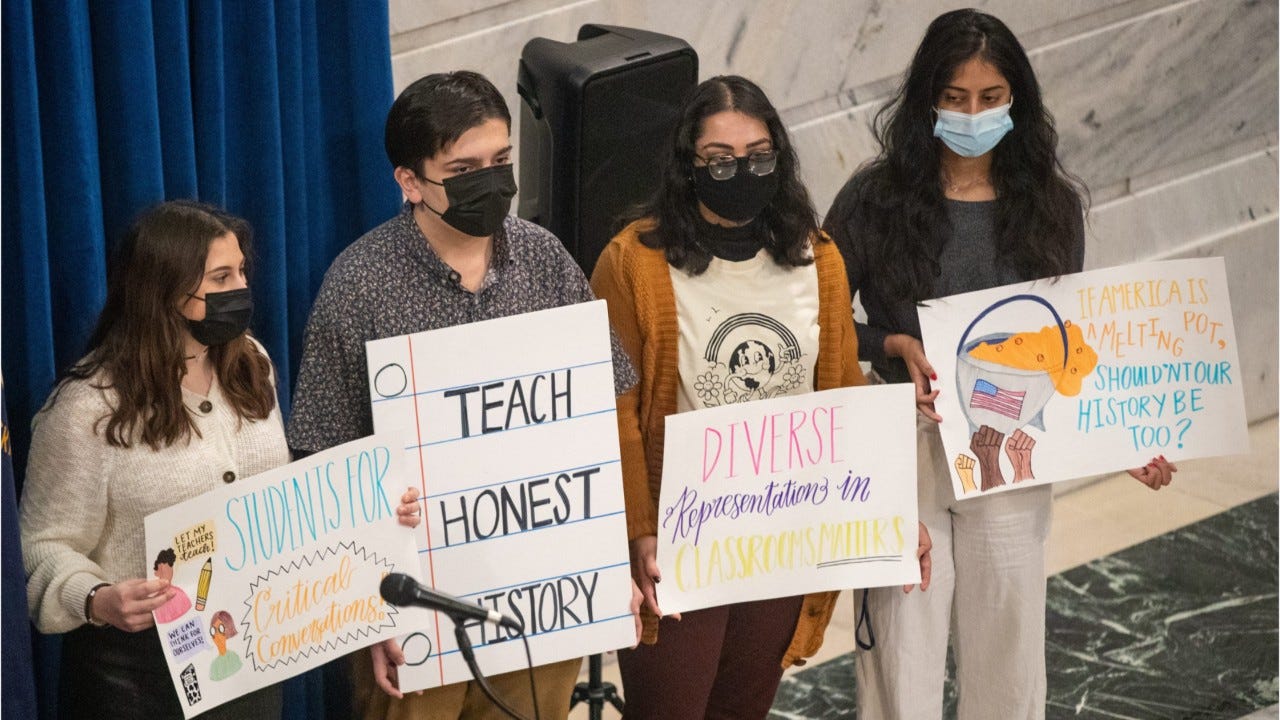DeSantis' 'Stop WOKE' Act could force Florida businesses to rethink diversity training

TALLAHASSEE, Fla. - Florida is set to become the first state in the country to restrict how workplaces can talk about racism and bias.
The legislation, HB7, better known as the "Stop WOKE" Act, was pushed aggressively by Gov. Ron DeSantis and sailed through the Republican-controlled Legislature last month, despite pushback from dozens of businesses and chambers of commerce.
The bill also restricts discussion of such topics in schools, in line with a conservative-led trend to tamp down instruction on race, gender and sexuality. But Florida is unique in extending the provision to workplaces. Any violation could open up employers to a civil rights lawsuit.
Experts in diversity, equity and inclusion training say the bill, which could be signed into law within weeks, is likely already having a chilling effect – particularly for small and midsized companies without deep pockets to defend against legal action.
“It’s going to put a damper on the progress that’s been made and is being made,” said Dawn Siler-Nixon, diversity, equity and inclusion partner at the employment and labor law firm Ford Harrison. “It’s really fraught with a lot of pitfalls … I don’t think anyone wants to be the guinea pig here.”
The consequences go further than corporate liability, said Matthew Kincaid, CEO of Overcoming Racism, an organization that provides anti-racism training to school districts and businesses. It will likely make it harder for Florida companies to recruit and retain employees of color, and research shows that diversity in the workplace is better for the bottom line.
"The law makes it illegal to say racism is systemic,” Kincaid said, “but the sheer fact that this policy could be passed is evidence that it is.”
Stop WOKE Act: New limits on talk of race in schools and work sent to Florida Gov. DeSantis
Backlash against 'woke indoctrination'
Workplace diversity training – now more often called diversity, equity and inclusion, training – started more than two decades ago with a focus on how diverse backgrounds and perspectives can help business.
But after the May 2020 police murder of George Floyd in Minnesota, businesses across the country announced commitments toward achieving racial justice, which for some included taking a more comprehensive approach to diversity, equity and inclusion training.
That instruction addresses topics that were once taboo to talk about at work, such as race and religion, and how those differences might show up at work. Sometimes that means delving into history, for example, pointing out that American policing has roots in enforcing slavery, or how racially discriminatory lending policies have contributed to modern wealth disparities.
DeSantis announced the proposal that would become House Bill 7 in December as a way to “give businesses, employees, children and families tools to fight back against woke indoctrination.”
Under the bill, a workplace can’t require training that makes an employee “by virtue of his or her race, color, sex or national origin” feel they bear “personal responsibility for and must feel guilt, anguish or other forms of psychological distress for actions in which the individual played no part.” It also bans teaching that certain races are inherently privileged or oppressed, and taking into account a co-worker’s race, gender or nationality when interacting with them.
Its origins lie in a largely Republican backlash against critical race theory, a complex academic concept that says in part that racism is baked into American institutions and policies. More recently, though, critics have conflated it with broader themes of social justice and anti-racism.

Critical race theory: What is it and how did it become a political dividing line?
DeSantis pointed to three examples of “woke corporate trainings,” citing reports from the Manhattan Institute, a conservative think tank. Bank of America, Google and Raytheon delved into issues such as white supremacy and systemic racism and challenged their white employees to acknowledge their privilege.
Last year, conservative media outlets slammed AT&T for its program, which called racism a “uniquely white trait.” Then, last month, the Walt Disney Co. faced backlash after a group of anonymous employees said the company’s “Reimagine Tomorrow” training isolated employees “whose political and religious views are not explicitly progressive," according to Fox Business News. Disney employs nearly 80,000 workers in Florida.
House Bill 7 resembles an executive order former President Donald Trump issued in 2020 that prohibited federal agencies and contractors from teaching “divisive” concepts about race and gender.
It was short-lived. A federal court soon barred enforcement of Trump's order, and President Joe Biden rescinded it the day he took office last year.
Presidential order: Labor Department suspends Trump executive order banning diversity training
Experts, including Siler-Nixon, who runs her firm’s diversity, equity and inclusion training and works with outside companies to teach theirs, anticipate the Florida bill to be challenged in court once it’s signed into law.
Workarounds for workplaces
Many Florida businesses lean toward a more moderate approach to diversity training that shouldn’t run afoul of the law, said Chad Sorenson, president of the Human Resources Florida State Council, which represents 16,000 HR professionals. The council was against the workplace portion of the bill, Sorenson said, adding that it’s redundant to anti-discrimination laws already on the books.
That means focusing on how diversity can help the workplace and emphasizing that employees should welcome all ideas and perspectives.
Sorenson, who also runs a workplace training consulting firm with clients all over Florida, shared slides from his training. It covers applicable discrimination laws, types of bias, benefits of diversity, and characteristics that may differ between employees, including race and gender but also qualities like cognitive style and education level.
Still, Sorenson acknowledged that an employer can’t control how an employee perceives information. Employers worried about violating the law could make their training voluntary; the bill restricts only training that’s mandatory.
Understanding 'woke' culture: We should all strive to be 'woke' | Opinion
'It’s all American history': Gov. Ron DeSantis' Stop WOKE Act will have 'chilling effect,' say teachers and Democrats
Workplaces could also add a disclaimer that the company doesn’t endorse the material, or that the views expressed in the training are held by some but disputed by others. According to the bill, discussion of the listed topics can continue as long as it’s “given in an objective manner without endorsement of the concepts.”
But those accommodations undermine the point, said Kincaid, the Overcoming Racism CEO. Voluntary training won’t capture the people who need it most, and disclaimers require employers to distance themselves from the culture they’re trying to implement.
Kincaid said he plans to explore options to keep doing business in Florida, but, “what we won’t do … is change our content. We won’t lie about what the nature of racism is to conform to a state law.”
Kincaid has already faced backlash in Florida. His organization contracted with the Brevard County School District to train teachers and administrators with the goal of closing the achievement gap between white and minority students.
But, in a July 2021 guest column published in Florida Today, the president of the Brevard chapter of Moms for Liberty, a conservative parents’ group, criticized the organization as “blatantly racist” against white people.
'I think it's just a misinterpretation': Brevard School Board: training accused of critical race theory has nothing to do with race
That, and HB 7, mischaracterize the organization’s work, Kincaid said. It’s not about blame or accountability but rather about understanding the past to make room for a better future.
“One of the biggest issues of policies like this is it creates noise around work that is fundamentally hopeful,” he said, “work that is fundamentally focused on eliminating racial bias in workplaces and in schools, and doing so in a way that humanizes all of the participants.”
“This should be universally agreed upon as a positive thing."
Kathryn Varn is a statewide enterprise reporter for the Gannett/USA Today Network - Florida. You can reach her at kvarn@gannett.com or (727) 238-5315.